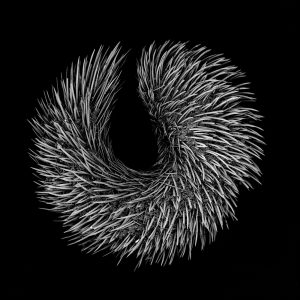
A perplexing group of worm-like mollusks are not primitive ancestors of the group, rather they lost many traditional mollusk traits over time, according to new evidence.
Led by a biologist at The University of Alabama, researchers found that aplacophorans, a group of worm-like mollusks with chalky scales or spikes that feed on the ocean floor, belong in the same branch as other mollusks. They lost their shells through evolution, and are not, as some thought, a primitive group who never had a shell.
The findings are outlined in a paper published in Proceedings of the Royal Society B. The lead author is Dr. Kevin M. Kocot, UA assistant professor in biological sciences and curator of invertebrate zoology in the Alabama Museum of Natural History.
“These results show that some of our traditional views about the evolution of this group were wrong,” Kocot said. “Evolution selects for whatever makes animals more reproductively successful, and, sometimes, such as in the case of parasites, becoming more morphologically simple is the direction the evolution of a lineage takes.”
The work was supported by a grant from the National Science Foundation and the Norwegian Taxonomy Initiative.
Learn more about this research by reading the full article on the UA news site.